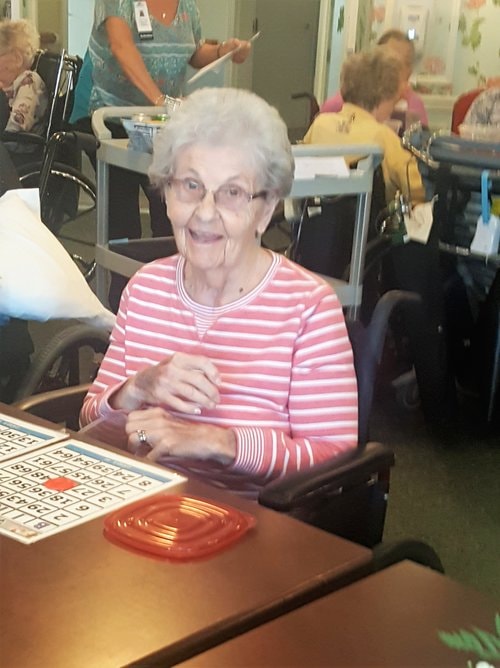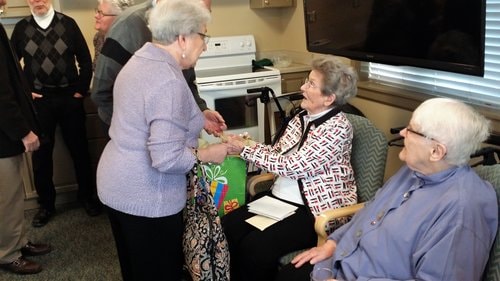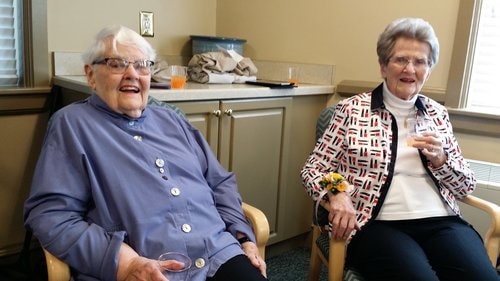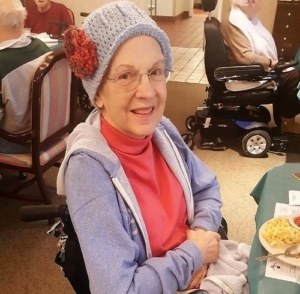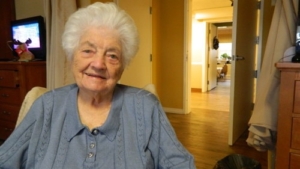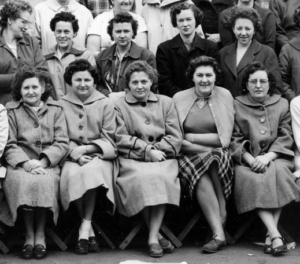Resident Spotlight: Miriam Mackert celebrates her 100th birthday with family
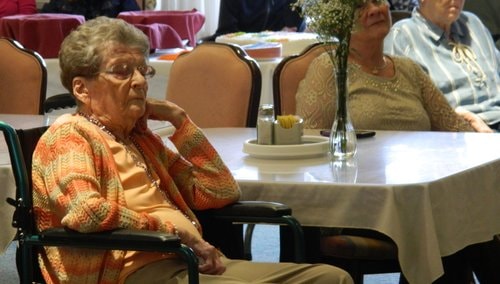
Miriam Mackert celebrates her 100th birthday with family!
When Miriam Mackert was married to a Pennsylvania State Trooper and raising her children, she worked hard and always put family first. On a Saturday in April, 2017, her loved ones put her first with a 100th birthday celebration at Homeland Center that, unbeknownst to the birthday girl, brought together the whole family.
“I just wanted to try and make her happy,” said her daughter, Karen Jackson. “She didn’t know the kids would be coming. She only thought it was going to be cake.”
What Miriam believed would be a small get-together was actually a party for about 20 family members and fellow Homeland Center residents. A performance by barbershop quartet Gents Nite Out helped revive memories of her 50th anniversary party, when she and her late husband, Howard, thoroughly enjoyed an appearance by that same group.
Shortly before the party, Jackson did tip off her mom about the extent of the guest list, but Miriam was still thrilled.

“It’s terrific,” she said of the turnout. “A little surprising. My daughter, she talked to everybody. I’m so glad she got everyone together here.”
Dressed in a bright coral-colored sweater, Miriam said she feels pretty well on many days.
Miriam’s son, Jack Mackert, found it “pretty amazing” that his mother was celebrating a century of living. “She’s a good woman,” he said. It was time for a party because “how many people get to be 100? It’s pretty special.”
Jack’s wife, Susan Mackert, calls her mother-in-law “the Energizer Bunny.”
“She’s an amazing lady,” she said. “She has a young attitude. She’s always thinking about other people. She puts other people first.”
The Gents Nite Out performance was the highlight of the afternoon. They sang classic barbershop quartet fare, such as “My Old Kentucky Home,” spiced up with jazzy versions of “Georgia on My Mind” and “Zip-a-Dee-Doo-Dah,” plus a moving rendition of the World War II standard “I’ll Be Seeing You.”
Jackson invited Homeland employees and residents to the party and the quartet’s performance to demonstrate the family’s gratitude for Homeland’s excellent care.
“I’ve been very pleased with her care and with the kindness of the nursing staff,” she said. “They can make her smile and make her laugh. To me, that’s important.”
Miriam grew up in Sunbury, Pennsylvania, and got to know her husband, of nearby Lewisburg, at local dances. She supported her son’s school sports pursuits, and she remains a big football fan, sometimes questioning the referees’ calls.
When Miriam was raising her two children, there were home-cooked meals every night, said Jackson, of West Hanover Twp. Miriam’s husband retired from Pennsylvania State Police as a sergeant, and throughout his career, she supported him through transfers around barracks statewide. Together, the couple constantly working as they cared for their home and family property in Lewisburg.
“She has given all of herself,” said Jackson. “It was always about us. Always. She did without for a lot of years. We didn’t live an extravagant life. She was all about the family. That was her world.”

